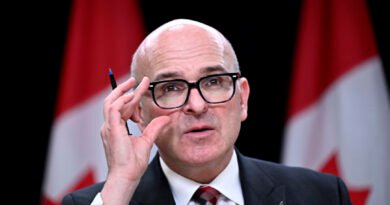Atlantic Liberal Caucus Demands Trudeau’s Resignation, Calls for New Leadership
The Atlantic Liberal caucus is urging Prime Minister Justin Trudeau to step down as party leader in a letter expressing “deep concern” about the future of the government.
Dated Dec. 23, the letter was publicly shared on Sunday by New Brunswick MP Wayne Long, who has been calling for Trudeau’s resignation since the fall.
Long stated in a Facebook post that he shared the letter for the sake of “openness and transparency.”
“If we are to have any chance in the next election, and prevent a Pierre Poilievre government, we need new leadership with a new vision for our party and the country,” Long wrote.
Atlantic caucus chair and Nova Scotia MP Kody Blois authored the letter, emphasizing that it is no longer “tenable” for Trudeau to lead the party.
The letter highlights the “instability” the country is facing due to U.S. president-elect Donald Trump’s tariff threats and indications from opposition parties about declaring non-confidence in Trudeau’s government at the earliest opportunity.
The letter acknowledges Trudeau’s nine years of service as prime minister, recognizing his “positive and consequential legacy.” It warns Trudeau that this legacy could be jeopardized if he continues as leader.
This letter follows less than two weeks after Chrystia Freeland’s resignation from Trudeau’s cabinet as finance minister and deputy prime minister.
“Our colleagues this morning expressed their deep personal affection for you, their pride in our work as a Liberal team, but also their deep concern that without a leadership change, that progress will be lost under a Pierre Poilievre-led government,” Blois wrote to Trudeau.
The letter concludes with a request for a national caucus meeting in early January so that Liberal MPs can deliberate on their next course of action.
Blois has not responded immediately to a request for comment. Trudeau is reportedly contemplating his future during the holiday break.
Conservative MP John Williamson announced on Friday his intention to introduce a non-confidence motion at the next public accounts committee meeting on Jan. 7.
If this motion is successful at the committee level, it would be passed to the House of Commons and could be voted on as early as Jan. 30, potentially triggering an election if it succeeds.
During the fall session of the House of Commons, the Conservatives put forward three non-confidence motions, which the Liberals were able to survive with support from the NDP.
However, NDP Leader Jagmeet Singh has now stated that his party has lost confidence in the government and plans to introduce a non-confidence motion in the new year, irrespective of who is the Liberal leader.





